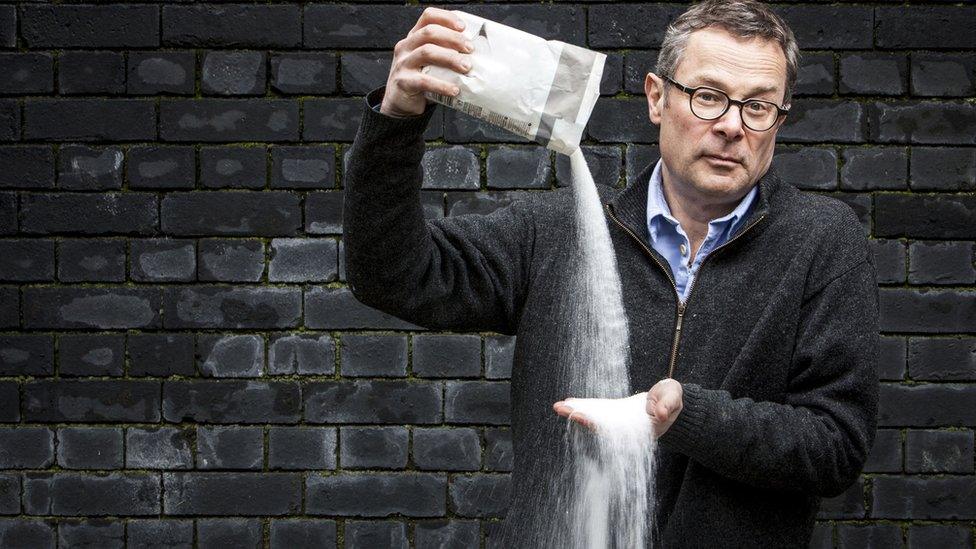Weight loss and loose skin: Patients ‘forgotten’ by NHS
- Published
Amy lost 19 stone but hates her saggy skin
A senior plastic surgeon has told Newsbeat people who were obese and now have saggy skin are often "forgotten".
Mark Soldin thinks a lot of people should be able to get the treatment on the NHS - and he's been "fighting hard for patients to get better access".
The surgery can cost thousands of pounds.
The NHS says funding is not generally available for cosmetic surgery unless there is a medical need and it impacts quality of life.
In 2016/17, 752 abdominoplasty's (tummy tucks) were carried out on the NHS.

Steph used to weigh more than 20 stone (127kg)
Steph's story
Steph O'Shea used to weigh more than 20 stone (127kg). She started losing weight in January 2017.
She's lost six stone (38.1kg) but has been left with excess skin.
"It's not just one area. It's my arms, tummy, thighs and breasts," she says.
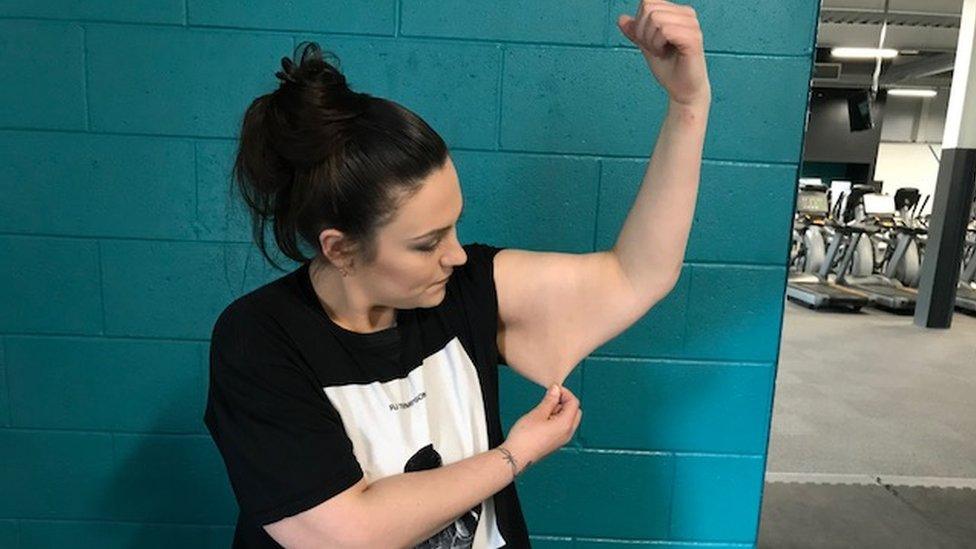
Weight loss has left Steph with saggy skin
'I was told they're here to save lives, not to get me beach-ready'
Steph, 26, says her saggy skin is impacting on her daily life.
"It's affecting my relationship with my partner. Intimacy - that's pretty non-existent."
As part of her healthier lifestyle she exercises three times a week at the gym and says her skin can get in the way.
"My tummy - because it sags so much - it sits in between my legs, so it can get trapped in machines.
"You have to make sure you're having a shower, drying and moisturising properly and there is nothing left in the folds because you could get infections."
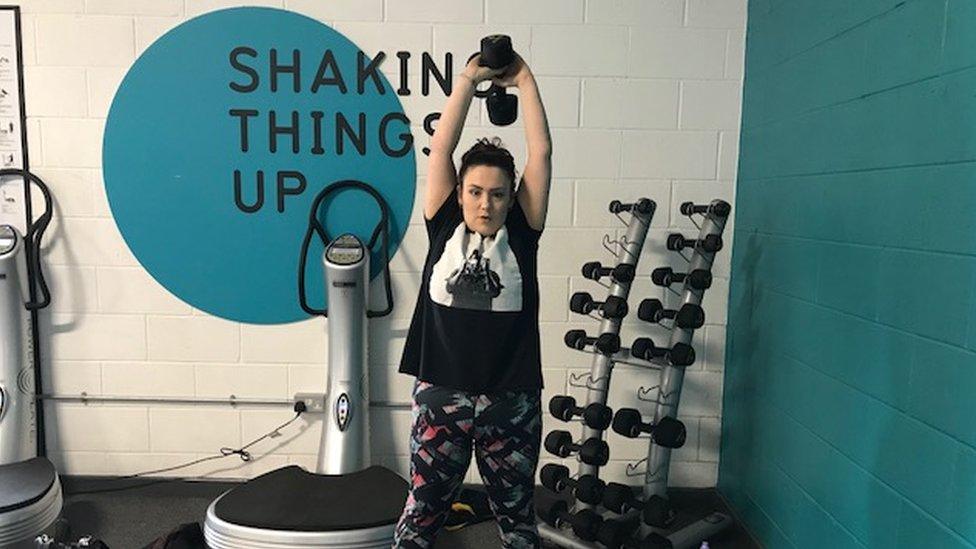
Steph, a mum-of-two, goes to the gym as part of her new lifestyle
Steph, who's from Staffordshire, says she approached her GP about having surgery to remove her excess skin on the NHS.
"I was told I don't fit the criteria, they're here to save lives and not get me beach-ready for the summer and I should go private."
But Steph feels that's harsh.
"Hopefully by losing all this weight I have reduced my risk of heart disease, diabetes and cancer - and in the long run I am saving the NHS money.
"I am not saying they should dish out cosmetic surgery for everyone, I think each case should be looked at individually."
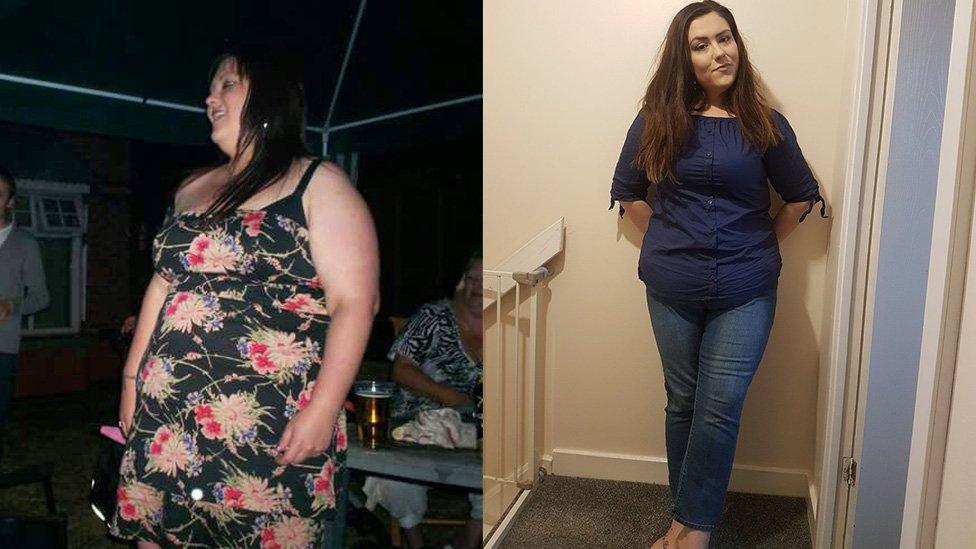
Steph has lost six stone since January 2017
'People that were obese don't have a loud voice'
Plastic surgeon Mark Soldin works privately and for the health service.
"Patients can get this on the NHS. I have been fighting hard for patients to get better access for about 10 years now."
He says a group of surgeons developed guidelines for all GP practices to follow.
"They state if you've lost more than 50% of your excess body weight you'd be eligible.
"You'd need a BMI, external (body mass index) of less than 30 and you need to show [the excess skin] affects you functionally.
"It's not enough to say: 'I am unhappy with this'."
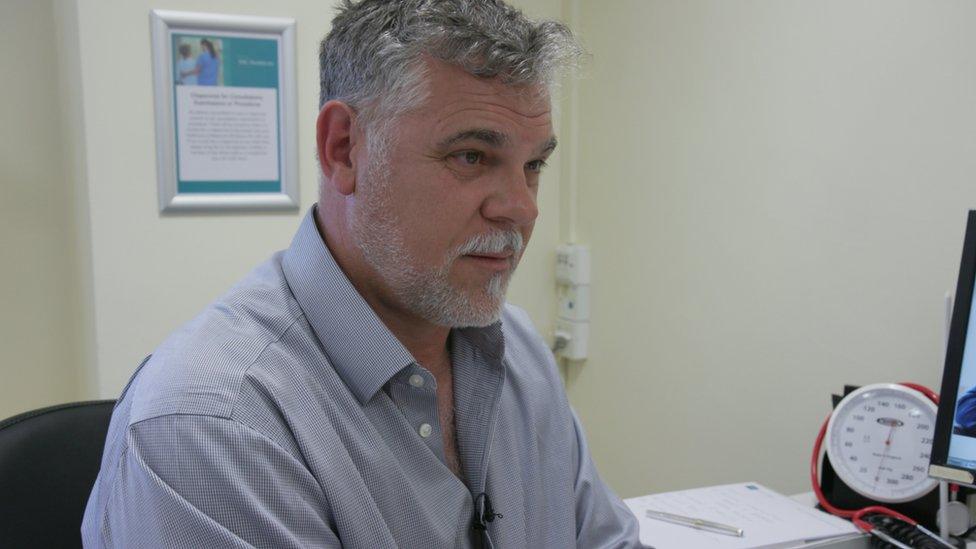
Mark Soldin is a consultant plastic surgeon
Mark Soldin says people who are obese are often overlooked.
"They don't have a loud voice compared to patients with breast cancer for example, they have an extremely powerful lobby, they get what they want. Deservedly so, it's a cancer.
"But people that were obese, they don't have a loud voice and they are largely forgotten."
NHS bosses told Newsbeat that funding is "not generally available" for surgery to "exclusively improve appearance".
But some hospitals will pay for procedures such as "body contouring", the co-chair of NHS Clinical Commissioners and Chief Clinical Officer told us.
Dr Amanda Doyle said this may be funded "where there is a clear medical need and the quality of life for a patient may be hampered."
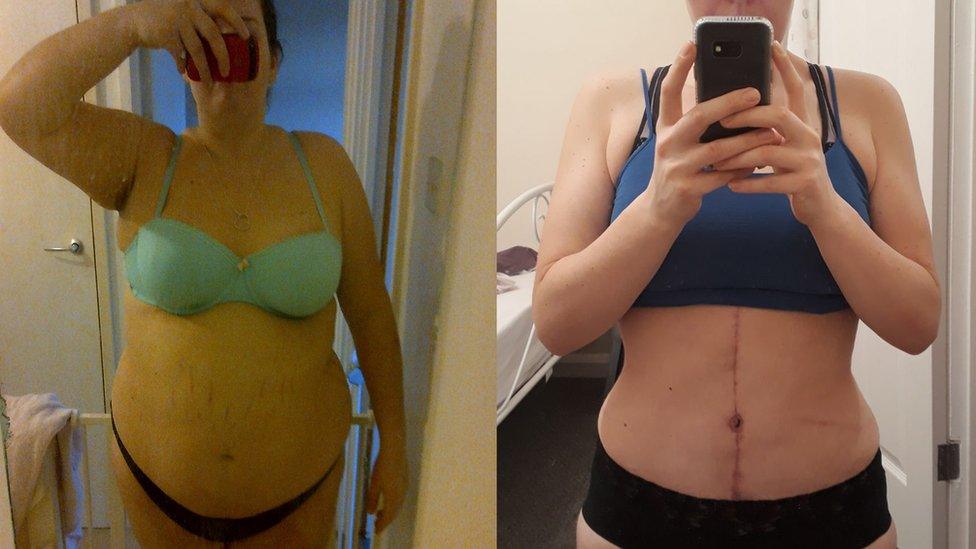
Abby lost seven stone and had surgery to remove her excess skin in February
'There's people out there that need the NHS more'
Abby, 28, from Peterborough, paid privately for surgery to get her excess skin removed in February.
It cost £7,800. She paid for it by taking out a loan and will be paying it back for the next five years.
She thinks people should try to pay for their own surgery rather than using the NHS.
"I kind of feel there's people out there that need the NHS more than people that can save up and then get it done."
But Steph says one of the quotes she has had for the surgery is £24,000.
She says that's unaffordable and she's set up a crowdfunding page.
"It's not do-able for average working class people. Who really has that kind of money spare?"
Follow Newsbeat on Instagram, external, Facebook, external and Twitter, external.
Listen to Newsbeat live at 12:45 and 17:45 every weekday on BBC Radio 1 and 1Xtra - if you miss us you can listen back here.
- Published24 April 2018
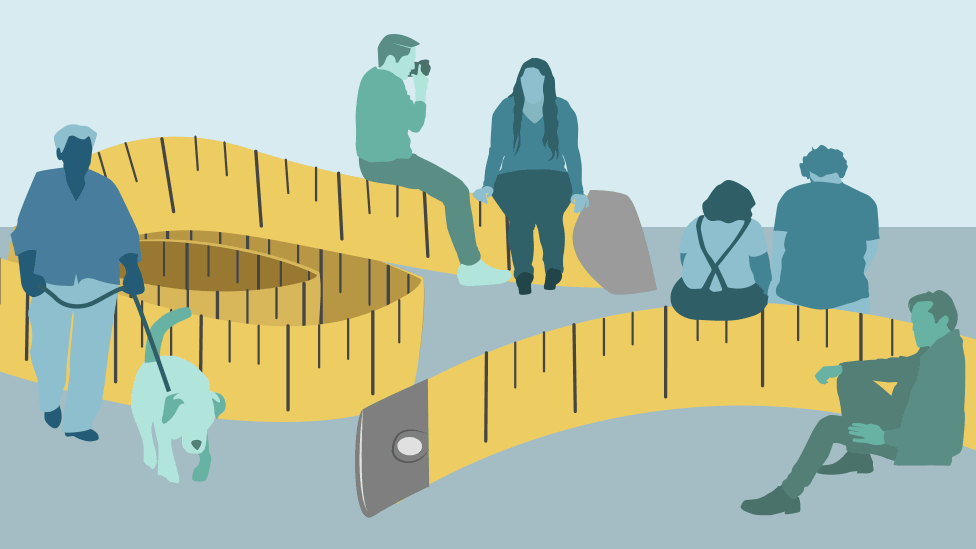
- Published26 April 2018

- Published24 April 2018
